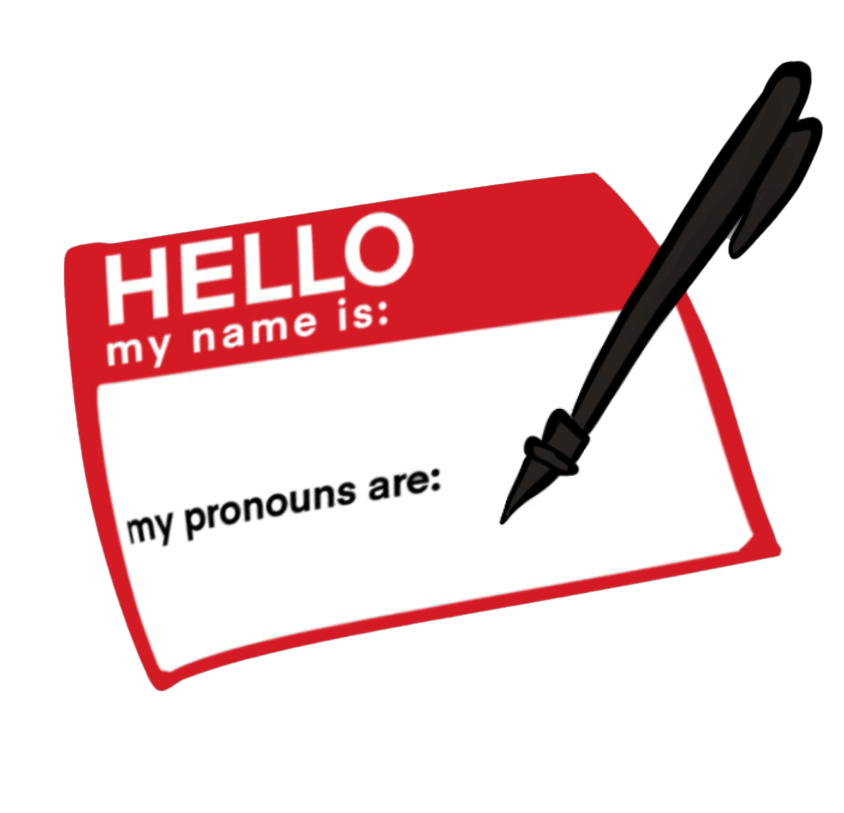The House of Representatives Eliminated What?…Pronoun Discussion
Biological sex and gender are two different things, but they are commonly confused. One’s biological sex is a result of the chromosomes that make up their body. Genders, on the other hand, are the roles and responsibilities of an individual that have been created throughout society and culture, including the characteristics, aptitudes, and behaviors associated with either masculine or feminine qualities. The gender spectrum and how one might express themselves has broadened beyond the traditional gender roles that have been ingrained in society for so long. So, when conversing with someone new, asking what pronouns they use can help to create a more comfortable environment and foster a deeper understanding of who you are talking to.
But, how do I figure out my own pronouns? It is very simple. If you feel comfortable being addressed by “her” or “she,” then your pronouns are she/her. The same goes for people who prefer to go by “he” or “him.” However, not everyone identifies with binary pronouns. Non-binary people may choose to go by “they/them” to indicate that they do not feel comfortable being referred to definitevely as either male or female. Others may accept both gendered and non-binary pronouns such as the pronouns he/they, they/he, she/they, or they/she. Generally, the first pronoun of the two is preferred, but it never hurts to ask others what a person’s preferred pronouns are. There are even groups of people who accept all pronouns. As we progress towards a more inclusive and diverse society, laws and new acts towards more fluid pronouns and gender identities are an important step to help these communities.
House Speaker Nancy Pelosi and Rules Committee Chairman James P. McGovern have recently passed a new code of conduct for the House of Representatives. This new code details that gendered pronouns cannot be used in any sort of resolution that the House of Representatives may create. So, terms such as “mother,” “father,” “son,” “daughter,” “aunt,” and “uncle” will be eliminated. Some may ask, “Why is this necessary?” The answer is that it helps people who are non-gender conforming, non-binary, or those who go by different pronouns. Junior Madison Sontag-Denoon, the vice president of the LHS Student Diversity Council, explained, “I agree with the proposal because even though pronouns might not be a thought in everyone’s day, they can affect many that do not identify with what one may think when looking at them. I feel this is a perfect way for people to take notice and acknowledge the world changing around them. It is a great way to help people feel more accepted in society.” Also, a new House of Representatives Office of Diversity and Inclusion will be established to create the most inclusive and accepting environment possible.
While a majority of the popular identifies as either male or female, there is also an equally important community that does not identify as either. With the underlying stigma against non-binary and those confused about their identify, this proposal will push for reform that will create a more accepting society. I am very excited with what the new proposal details, and how it may trickle down from Congress and the House of Representatives to restaurants, public areas, schools, and even bathrooms. As someone who identifies with the pronouns he/they, I, along with others who do not identify with strictly binary pronouns, feel more comfortable in environments where my pronouns are respected.
School can be a comforting and accepting space, but without proper acknowledgement of pronouns and gender identity, many people may feel uncomfortable expressing their true self and reaching their full potential. “I think this will open the eyes of many, especially those who teach and nurture our youth,” added Sontag-Denoon. “It will help open a door for those who may not have been comfortable with the way society labeled them or called them.” Gender-neutral bathrooms, the use of gender-neutral pronouns when addressing students, and an increase in the number of conversations about gender identity and pronouns are all changes schools can make to be more welcoming.
Junior Asa Freeman, President of the LHS Diversity Council, said, “I use he/him pronouns. I like that LHS has gender-neutral bathrooms, and I think that the topic of gender expression should be more normalized in a school setting.” Teachers explaining their personal pronouns (only if they are comfortable) and using gender-neutral pronouns to address the student body in the classroom will further help students feel comfortable and feel accepted with who they are.
“With the diverse student body at LHS,” shared junior Sophia Napalitano, “it is important to recognize and respect the pronouns of all of our peers. I think it is important that we simply ask others, ‘Hey! By the way, what are your preferred pronouns?’ to help students and staff properly address each other.” Normalizing the use of people’s preferred pronouns will help create a warmer, more welcoming school environment.


















